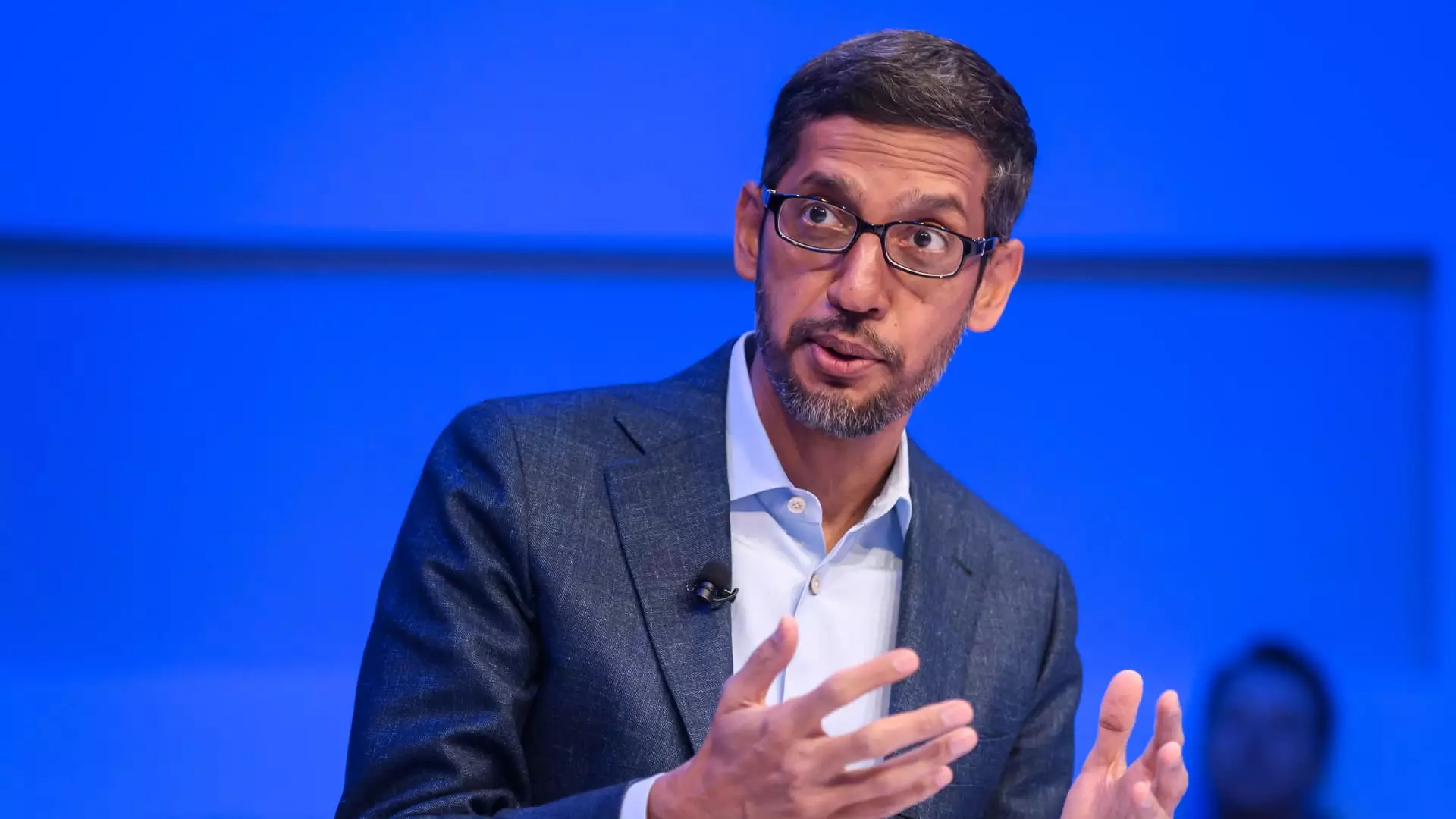As tech titans face mounting pressures from competitors and regulators alike, Google’s Chief Executive Officer, Sundar Pichai, has made it abundantly clear that 2025 stands as a pivotal point in the company’s journey. In a recent address to employees, Pichai emphasized the urgency of innovation and the need to adopt a more agile corporate culture. This article explores the sentiments expressed by Pichai, the competitive landscape, regulatory challenges, and Google’s ambitious plans as it gears up for a transformative year.
Pichai’s message to his team resonated with an intense sense of urgency. “The stakes are high,” he declared, urging employees to embrace a proactive attitude as they venture into a year characterized by rapid advancements in artificial intelligence (AI). The call to action was set against the backdrop of challenges that the tech industry faces at large, including an increasingly crowded marketplace and stringent regulations that threaten traditional business models. Pichai’s perspective that “these are disruptive moments” speaks to the need for adaptive strategies to swiftly unlock the transformative potential that AI technology offers.
Google’s firm grip on the search market has come under renewed pressure due to the breakthrough developments brought about by generative AI. Competitors, particularly OpenAI, have made significant waves with products like ChatGPT, creating urgency for Google to innovate within its own AI frameworks. Pichai acknowledged this reality, stating that Google’s continued success hinges on not just maintaining market share but also on being a first-mover in integrating effective AI solutions. The competitive landscape is becoming increasingly pronounced, with alternative search engines powered by AI—such as Perplexity—gaining traction in user adoption. This scenario underlines Pichai’s call for agility and the need for robust plans to match or surpass these emerging technologies.
Beyond competition, Pichai’s leadership is colored by an awareness of regulatory looming pressures. The company has faced legal challenges, including a ruling that declared Google holds an illegal monopoly in the search market. These conditions exacerbate the urgency for innovation as both external scrutiny and internal company culture evolve. Pichai’s recognition that regulatory oversight is a consequence of Google’s size and past successes signals an understanding that adaptability must extend beyond product innovation to encompass corporate governance and public accountability. It’s a call for the company to not lose sight of its foundational values even amidst escalating pressure.
Central to Google’s strategy is the ambitious rollout of its AI initiatives, notably the Gemini app and its large language models. Pichai’s remarks suggested that 2025 would be an essential year for scaling Gemini and integrating it into everyday user experiences. This shift not only represents Google’s commitment to reclaiming its leadership position in AI but also highlights a pivot towards consumer interaction. By harnessing AI capabilities, Google is focusing on solving real user problems while driving user engagement.
The introduction of Project Astra and updates to existing AI products underscore Google’s commitment to an expansive vision for the future. By aiming for a universal assistant capable of seamlessly operating across various domains, Google is not just responding to market trends—it’s pushing the boundaries of what technology can achieve. This strategic initiative paves the way for progressive solutions that can potentially disrupt traditional business models while enhancing user experience.
Pichai’s emphasis on a “scrappy” culture mirrors the innovation-driven mentality of Google’s early days. This cultural shift is especially crucial in light of the recent workforce reductions as a part of a broader strategy to enhance efficiency. The return to a nimble, creative approach is poised to foster an environment where constraints lead to creative solutions. Pichai’s reference to the company’s founders serves as a poignant reminder of the principles that propelled Google to prominence: adaptability, resourcefulness, and an unyielding commitment to innovation.
As Google stands on the brink of significant operational and strategic shifts in 2025, Pichai’s insights offer a glimpse into the challenges and opportunities ahead. The confluence of intensified competition, regulatory scrutiny, and the quest for innovation creates a crossroads that will define the trajectory of Google for years to come. By embracing a mindset that values agility, accountability, and creativity, Google is positioning itself to not only navigate the complexities of the market but also to potentially reclaim its stature as a leader in technology and innovation. The stakes are undoubtedly high, but with the right focus and commitment, 2025 may very well mark a transformative chapter in Google’s storied history.

